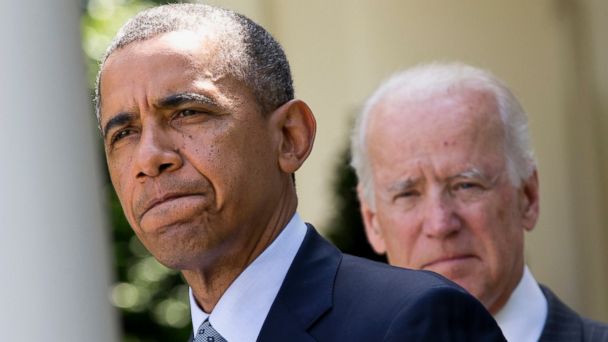Obama Delays Immigration Decision Past November Elections

(Credit: Jacquelyn Martin/AP Photo)
WASHINGTON - With his Democratic Party facing uneasy odds ahead of the fall congressional elections, President Obama has decided to delay any executive action on immigration until after voters hit the polls.
The decision, confirmed to ABC News to by a senior administration official, abandons a prior pledge to address the surge of undocumented immigrants across the southwest border by the end of summer.
In a White House speech in June, Obama said he had ordered Homeland Security Secretary Jeh Johnson and Attorney General Eric Holder to draw up solutions to the crisis the administration could pursue if Congress refused to act.
The president said Friday that he would act soon.
Immigration Overhaul Revvs Up on Capitol Hill Despite Fewer Crossings
Here's What Obama Would See If He Visited the Border
Advocates Rip Obama for Another 'Broken Promise' on Immigration
"In the absence of Congressional action, I intend to take action to make sure we are putting more resources on the border, that we are upgrading how we process these cases, and that we find a way to encourage legal immigration, and give people some path so they can start paying taxes and pay a fine and learn English," Obama said Friday. "My expectation is fairly soon I'll be considering what the next steps are."
Officials now say the decision will come before the end of the year.
But that promise of executive action is playing poorly for Democrats in red-state Senate contests. Administration officials tell ABC News the president was concerned it would "bog down" debate going into November. The decision to delay is one thing the White House can try to do in its quest to hold the chamber while drawing the ire of some progressive groups.
Immigration enforcement agencies have overseen an estimated 1,000 deportations a day of undocumented immigrants, including large numbers of children. It is a number likely to rise as the administration grapples with an overwhelmed system, creating a humanitarian crisis. The migrants come mostly from Central America, fleeing violence and epidemic poverty, although their numbers have been decreasing.
The White House had previously gone to Congress asking for $3.7 billion to relieve pressure on the agencies. But the Republican-controlled House of Representatives balked, yielding only a fraction of the request. Further, the House measure made it easier to deport children arriving at the border, a move opposed by progressives and immigration reform groups. Ultimately Capitol Hill entered its summer recess with no solution.
Regardless, last week ABC News surveyed Democrats in a dozen key races but only one gave a thumbs up to the president acting alone.
Sen. Mark Pryor of Arkansas was among the sharpest critics, voicing his disapproval like this: "I, too, am frustrated with the partisanship in Washington, but that doesn't give the president carte blanche authority to sidestep Congress when he doesn't get his way."
Michelle Nunn, the Democratic candidate for Senate in Georgia, echoed Pryor's views.
"I do believe that we need to have Congress and the president work together," Nunn said at a campaign forum late last month. "We need to get out of the executive order business and into the compromising, collaboration and partnership business in Washington."
Even Democrats in blue states have raised concern about the president acting alone on immigration.
Sen. Al Franken of Minnesota, whose re-election bid is becoming increasingly competitive, said last week that Congress should hammer out an immigration deal - not the White House.
"We need to fix our nation's broken immigration system, which is why I supported the Senate's bipartisan, comprehensive immigration reform bill," Franken said in a statement to ABC News. "I have concerns about executive action. This is a job for Congress, and it's time for the House to act.?"
Immigration groups quickly criticized the president's delay.
"The President's latest broken promise is another slap to the face of the Latino and immigrant community," said Cristina Jimenez of United We Dream, who estimates an additional 70,000 deportations will occur before the election.